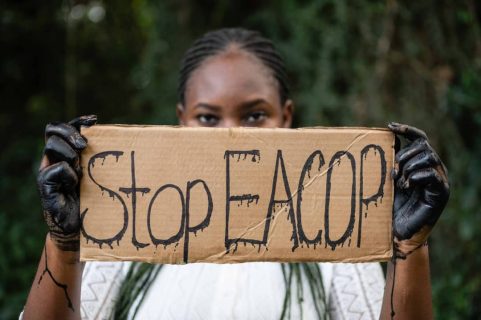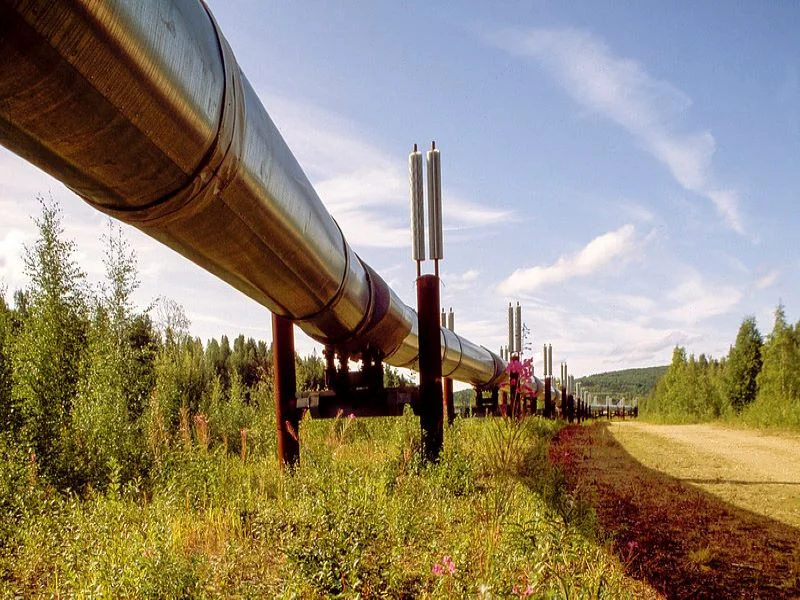Last Updated 1st September 2025– African countries are gearing up in the development of major pipeline projects in a bid to secure their future in energy. One of the major pipeline projects currently under development include the East African Crude Oil Pipeline (EACOP). This project has drawn the interest of major investors. The top financial lender of Africa, Standard Bank, expects to aid in EACOP Funding as part of the planned $5-billion East Africa Crude Oil Pipeline (EACOP), a controversial project that has had environmental campaigners call on banks to abandon financing for the EACOP pipeline. This pipeline project, is among the inter-country pipelines that are taking shape in Africa. Such pipelines include the Nigeria-Morocco Gas Pipeline and the Egypt-Israel Pipeline Project.
Talking of the Egypt-Israel Pipeline Project, Egypt has approved the construction of the pipeline from its side, at a cost of $400 million. Egypt is usually a large gas consumer, and despite having significant gas reserves of its own, it is struggling to meet its energy needs. Therefore, gas from Israel is crucial to its economy. Also it is an alternative to the even more expensive liquefied natural gas (LNG).
In the same way the Egypt-Israel pipeline is crucial for Egypt’s economy, so is EACOP to Uganda’s economy. EACOP will boost economy of Uganda by allowing the landlocked country to monetize its discovered oil reserves in the Lake Albert region. Without a pipeline to an international port, the crude oil would be difficult and costly to transport, limiting its value.
Cost of EACOP
The EACOP project, which is expected to cost a price of $5 billion, has a total length of 1,443 kilometer-long (897 miles) and will be constructed from landlocked Uganda to the Tanga port in Tanzania. The oil pipeline is expected to bring crude from the Lake Albert project in Uganda to the international oil market. It is designed to transport a total of 216,000 barrels of crude oil daily, with a ramp-up of up to 246,000 bpd, Uganda revealed.
Size of the EACOP
The EACOP pipeline, which is set to be the largest in Africa, is a part of Uganda’s comprehensive plan to develop its overall- oil resources.
The EACOP project is currently being developed and will also be operated by EACOP Ltd, a company comprising of the local branch of French supermajor TotalEnergies, as well as UNOC, the Tanzania Petroleum Development Corporation (TPDC), and the China National Offshore Oil Company (CNOOC).
Amid the prevailing controversies and continued calls on banks to halt the financing of oil and gas exploration and infrastructure development, Standard Bank hired in the year 2021 an independent adviser to help it come up with a decision on whether to accept or reject involvement in this ambitious project. The project has been strongly criticised by rights activists and environmental groups and has also faced criticism in the European Parliament.
EACOP Funding to be Supported by Standard Bank
The bank has completed its years-long environmental and due diligence review, the chair of Standard Nonkululeko Nyembezi revealed to Bloomberg during an interview that was published on Thursday.
“We have all the lenders on deck,” the executive added.
Field developments are currently ongoing and TotalEnergies could make an announcement regarding the pipeline in the months to come, Nyembezi told Bloomberg, adding that there is “complete commitment on the part of the sponsors of the oil projects to get it executed.”
EACOP Faces Opposition
The groups – Darwin Climax Coalitions, Sea Shepherd France, Wild Legal and Stop EACOP-Stop Total – say that TotalEnergies is liable for charges including destruction, damage or deterioration of property belonging to others likely to create a danger to persons, and failing to deal with a disaster.
Human Rights Watch in July urged a halt to the project, saying the project has “devastated thousands of people’s livelihoods in Uganda and will exacerbate the global climate crisis”.

TotalEnergies says that those displaced by the project have been fairly compensated, and measures have been taken to protect the environment.
Furthermore, the project involves drilling around 400 oil wells in Murchison Falls Nature Park, a biodiversity reserve and Uganda’s largest national park.
Lastly, Ugandan President Yoweri Museveni has vowed to proceed, saying the East African country’s economy will benefit from the project.
Also read: $3 Billion to be Sought for EACOP Debt Financing
East African Crude Oil Pipeline (EACOP) Above Ground Installations Commence
